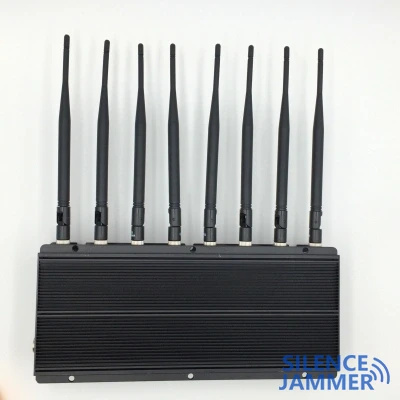MONTERREY (AP) — In response to cell phone interference during Mass, some Mexican priests have taken a technological approach by using cell phone signal jammers to ensure silence in churches.
At four Monterrey churches, cell phone signal jammers the size of handheld radios, cleverly hidden between statues of the Virgin and clay sculptures of saints, have restored peace to Masses. The jammers, made by Israel-based Netline Communications Technologies, were designed to prevent spies from eavesdropping and bombs from detonating.
“There are still many people who don’t understand that attending Mass is about spending time with God,” said the Rev. Juan José Martinez, spokesman for the Archdiocese of Monterrey. “Sadly, we have no choice but to use these gadgets.”

The tech solution: cell phone signal jammers
The jammers, which cost about $2,000 each and are turned on by a remote control, emit low-level radio frequencies that can interfere with cell phone signals within a 100-foot radius. Users receive a "no service" or "signal unavailable" message on their phones, and calls don't go through.
Mexican churches use cell phone signal jammers to keep Masses quiet
MONTERREY (AP) — In response to cell phone interference during Mass, some Mexican priests have taken a technological approach by using cell phone signal jammers to ensure silence in churches.
At four Monterrey churches, cell phone jammers the size of handheld radios, cleverly hidden between statues of the Virgin and clay sculptures of saints, have restored peace to Masses. The jammers, made by Israel-based Netline Communications Tech, were originally designed to prevent spies from eavesdropping and bombs from going off.
“There are still many people who don’t understand that attending Mass is about spending time with God,” said the Rev. Juan José Martinez, spokesman for the Archdiocese of Monterrey. “Sadly, we have no choice but to use these gadgets.”
The tech solution: cell phone signal jammers
The jammers, which cost about $2,000 each and are turned on by a remote control, emit low-level radio frequencies that can interfere with cell phone signals within a 100-foot radius. Users receive a "no service" or "signal unavailable" message on their phones, and calls don't go through.
The devices were introduced as a personal favor by insurance salesman Rodrigo de la Mora, who imported them for the priests. For months, the devices went unnoticed until reporters noticed that their phones simply didn't work in church.
Cell phones have surpassed landlines in Mexico, with one in four Mexicans owning one. However, as cell phones become part of daily life, so too have the problems of them chattering in movie theaters, restaurants and churches.
The Sacred Heart Church in downtown Monterrey is a baroque church that often hosts weddings of the rich and famous. Two years ago, church officials purchased jammers, and the problem of frequent cell phone use in the church has improved significantly.
"Whenever there's a wedding, the phones ring every five minutes," said Bulmaro Carranza, a priest at the Sacred Heart. "It's a real problem because sometimes even the groom forgets to turn off his phone."
Since Sacred Heart reported the use of the cell phone signal jammers, priests in Mexico City and Guadalajara have called to ask how to get the devices. While the Vatican does not track how many churches around the world use the devices, it acknowledges that the use of phones during Mass has become a headache.
Rosario Church, San Juan Bosco Church and Our Lady of the Angels Church have also begun using the devices. In Monterrey, where there are more than 200 churches, many of which are short of resources, priests remain hopeful that they can avoid the jammers and believe that good manners will prevail.
Blocking cell phone signals is illegal in the United States, but there are currently no regulations in Mexico. An official at Mexico's Federal Telecommunications Commission, who asked not to be named, said the use of jammers is not illegal in Mexico, which provides a legal gray area for churches' practices.
Margarita Escobedo, a Catholic who attends church at least twice a week and volunteers at San Genaro Church, said she welcomes the jammers to her church because cell phone use has become a nuisance. "Those who bring their phones to church don't believe in God," Escobedo said. "It's distracting to hear birdsong or electronic music while you're praying."
By using cell phone blockers, some churches in Mexico have successfully restored the tranquility of Mass. This move not only solves the problem of cell phone interference during Mass, but also provides an effective solution for other churches facing similar problems. With the help of technology, churches have found ways to keep sacred ceremonies pure and solemn, while also reminding believers to maintain good etiquette in sacred places.




